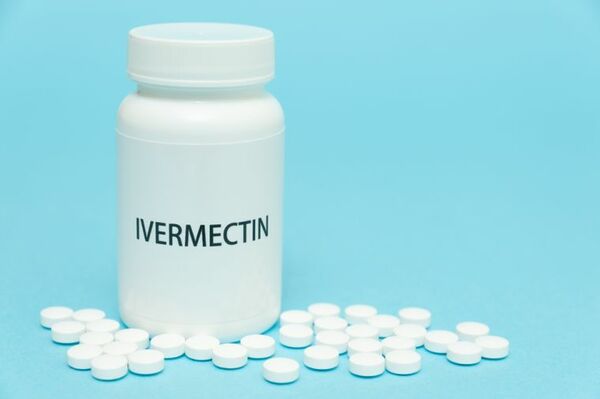ALL BUSINESS
COMIDA
DIRECTORIES
ENTERTAINMENT
FINER THINGS
FREE CREATOR TOOLS
HEALTH
MARKETPLACE
MEMBER's ONLY
MONEY MATTER$
MOTIVATIONAL
NEWS & WEATHER
TECHNOLOGIA
TV NETWORKS
VIDEOS
VOTE USA 2026/2028
INVESTOR RELATIONS
ALL BUSINESS
COMIDA
DIRECTORIES
ENTERTAINMENT
FINER THINGS
FREE CREATOR TOOLS
HEALTH
MARKETPLACE
MEMBER's ONLY
MONEY MATTER$
MOTIVATIONAL
NEWS & WEATHER
TECHNOLOGIA
TV NETWORKS
VIDEOS
VOTE USA 2026/2028
INVESTOR RELATIONS
 john levish -
5 hours ago -
Health -
20 views -
0 Comments -
0 Likes -
0 Reviews
john levish -
5 hours ago -
Health -
20 views -
0 Comments -
0 Likes -
0 Reviews

Ivermectin Iverheal 12mg is a widely used medication, primarily known for its effectiveness against a variety of parasitic infections. From head lice and scabies to more serious conditions like river blindness and strongyloidiasis, ivermectin has been a valuable tool in combating parasites. However, parents and caregivers often have concerns when it comes to using ivermectin in children. This blog will explore whether ivermectin is safe for children, its uses in pediatric care, and what precautions should be taken.
Ivermectin Iverheal 6mg is an anti-parasitic medication that works by paralyzing and killing parasites, preventing them from spreading and causing further harm. It is commonly prescribed for the treatment of:
Ivermectin comes in different forms, including oral tablets, topical creams, and lotions. While adults are the primary users, the question of whether ivermectin is safe for children is one that arises frequently, especially when it comes to treating parasitic infections in pediatric populations.
Ivermectin has been deemed safe for use in children, but like any medication, it must be used with caution and under the guidance of a healthcare provider. The safety of ivermectin depends on several factors, including the child's age, weight, the type of infection being treated, and whether there are any underlying health conditions.
In the United States, ivermectin is approved by the FDA for use in children for specific conditions, but it’s typically only prescribed in certain circumstances. The FDA has approved ivermectin for use in children weighing at least 15 kilograms (about 33 pounds) for conditions like strongyloidiasis and onchocerciasis, but it is not recommended for children younger than this without careful medical supervision.
For the treatment of scabies and head lice, ivermectin is commonly used off-label in pediatric cases, especially when other treatments, such as topical medications, have failed or are not suitable.
While ivermectin is generally considered safe, the medication should only be given to children under a doctor’s supervision, particularly in cases where they are younger than the minimum recommended weight.
The dosage of ivermectin for children is typically determined based on the child’s weight rather than their age. For example, the standard dose for treating strongyloidiasis (roundworm infection) is generally 200 micrograms of ivermectin per kilogram of body weight, taken as a single dose. For conditions like head lice or scabies, the dosing regimen might differ, depending on whether it’s given as a one-time dose or multiple doses.
Here are some general guidelines:
It’s crucial to follow your healthcare provider’s specific instructions, as they will base the dosage on the child’s exact condition and weight.
Like any medication, ivermectin can cause side effects, although serious side effects in children are rare. Most side effects are mild and may include:
In some cases, children may experience a Herxheimer reaction (a temporary worsening of symptoms) as the parasites begin to die off. Symptoms of this reaction can include fever, chills, muscle aches, and fatigue, but they typically resolve on their own within a few days.
While rare, serious side effects may include:
If your child shows any of these signs, you should seek immediate medical attention.
Although ivermectin can be a highly effective treatment for certain parasitic infections, there are certain instances when it is not recommended for children:
In many cases, ivermectin is not the first-line treatment for children with conditions like head lice or scabies. Other treatment options include:
Your healthcare provider will recommend the most appropriate treatment based on your child’s condition, age, and medical history.
Ivermectin can be a safe and effective treatment for certain parasitic infections in children, but it should always be used under the guidance of a healthcare professional. The safety of ivermectin depends on factors like the child’s age, weight, and overall health, as well as the condition being treated.
For children who are prescribed ivermectin, it’s essential to follow the doctor’s instructions regarding dosage and administration, and to be aware of potential side effects. While the medication is generally well-tolerated, parents and caregivers should remain vigilant for any signs of adverse reactions and consult their healthcare provider if any concerns arise.
As with any medication, the key to ensuring safety and effectiveness is careful oversight and communication with your child’s healthcare provider.

